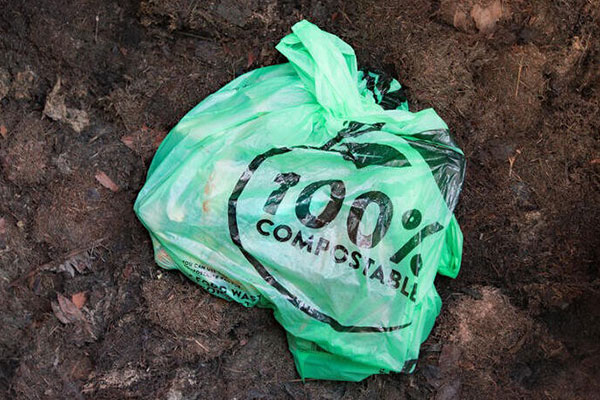Myth Busting – Compostable Bags
Insights from Raymond Pukacz, Clinical Engagement and Implementation Manager, have informed the development of the new Polymer Framework.
Raymond has been closely involved in supporting the new Polymer Framework and through this work he’s uncovered some eye-opening insights, particularly around the misconceptions surrounding compostable and biodegradable bags. While often seen as a more sustainable option, these materials don’t always align with the practical realities of hospital waste management.
The Reality Behind Compostable and Biodegradable Bags
What Raymond learned from the National Performance Advisory Group (NPAG), suppliers, and research.
One of the biggest takeaways? Most hospitals simply don’t have the infrastructure to support a dedicated compostable waste stream. Currently, there are two main methods used in the UK to handle food waste.
Anaerobic digestion: This process removes packaging before food waste enters digestion tanks, producing biogas and liquid fertiliser. It’s the UK’s most common method but doesn’t effectively break down compostable bags.
Composting: This involves heating and turning food and garden waste at industrial sites to produce compost. However, compostable bags are often mistaken for plastic and filtered out with other packaging. Some NHS trusts have even been advised against using compostable bags, as they can slow digestion and disrupt processing. Contractors instead recommend ordinary plastic bags.
Understanding the Terms: Biodegradable Versus Compostable
The term biodegradable can be misleading. While all materials biodegrade eventually, the timeframe varies dramatically – from a few weeks for vegetables to hundreds of years for plastics. Biodegradable bags do break down, but they often leave behind micro-residues that can harm water systems and marine life.

Polymer Products Frameworks
We are currently working on our pre-tender activity for the next Polymer framework, which will be out for tender (for suppliers) in October this year. This new framework will eventually replace and combine the two current frameworks (Polymer Products and Polymer Aprons) with a planned launch date of November 2026.
Why Compostable Bags Aren’t the Silver Bullet
There are several challenges associated with using compostable bags in healthcare and beyond:
- Special Conditions Required: These bags won’t decompose in general waste or home compost bins. They need heat, oxygen, moisture, microbes, and time.
“Burying isn’t composting,” says Vegware in The Guardian.
- Cost: Plant-based polymers are more expensive than petroleum-based plastics.
- Landfill Issues: In landfills, compostable bags often release methane due to anaerobic conditions, taking decades to decompose.
- Marine Pollution: Despite being ‘bioplastics’, they don’t biodegrade in oceans, contributing to pollution.
- Limited Infrastructure: While treatment plants can handle around 30,000 tonnes of compostables, the collection system is lacking.
- Domestic Limitations: Compostable bags break down slowly and can shred, leaving microfibres behind.
Looking Ahead: Smarter, Greener Solutions
Although compostable bags may appear to be an eco-friendly option, their practicality and environmental benefits in current hospital systems are limited. Alternatives such as reusable bags, recycling, and most importantly, reducing food waste at source, may offer a more sustainable path forward. With around a fifth of global food going to waste, addressing that issue directly would also reduce the need for excessive packaging in the first place.
Raymond’s findings also highlight growing concerns around greenwashing. Some suppliers market compostable and biodegradable products as environmentally safe for disposal in nature, but research tells a different story. As the Polymer Framework evolves, it must continue to challenge and filter out misleading environmental claims.
Let’s keep challenging assumptions and striving for genuinely sustainable and workable waste solutions that serve both patients and the planet.
